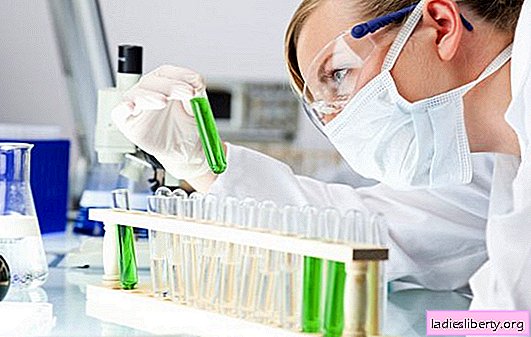
Cancer is an uncontrollably growing malignant tumor that kills millions of people every year.
Every 6 cancers are caused by viral or bacterial infections.
10 different pathogens can cause cancer, 4 of which are especially dangerous.
Many of these infections can be avoided with proper and consistent treatment.
How often do bacteria, parasites and viruses cause cancer?
A study by the International Agency for Research on Cancer (IARC) confirmed a causal relationship with the infection.
According to scientists, 2.2 million cancers worldwide are caused by viruses or bacteria, which is about 15% of all cases.
Most of them occur in poorer countries, but are also found in Europe.
Many of the cancers can be prevented with precautions and vaccinations.
The four most dangerous infectious pathogens
The most common pathogens that cause cancer:
- Helicobacter pylori;
- hepatitis B virus;
- hepatitis C virus;
- human papillomavirus;
- Epstein-Barr virus;
- human herpes virus type 8;
- human T-lymphotropic virus type 1;
- opisthorchis;
- clonors;
- schistosomes.
Researchers led by Martin Plummer of IARC found that 4 of these pathogens are the most dangerous:
- human papillomavirus;
- human hepatitis B and C;
- Helicobacter pylori.
More than 90% of cancer cases caused by infection occur in these pathogens.
Helicobacter pylori - the cause of 89% of all cases of stomach cancer, 73.4% of all cases of primary liver cancer are caused by hepatitis B and C. Human papillomavirus (HPV) accounts for 100% of cases of cervical cancer.
The authors of the study emphasize that many of these cancers are relatively easy to avoid.
In countries that regularly vaccinate their children for hepatitis B, the incidence of liver cancer has declined.
HPV vaccine reduces cervical cancer. Although there is no vaccine for hepatitis C, the infection can be stopped with medication.
In the case of Helicobacter pylori, there is considerable evidence that timely treatment with antibiotics can prevent the development of stomach cancer.
How is cancer formed due to infection?
How exactly viruses and bacteria cause cancer is not fully understood. It is known that chronic inflammation can lead to changes in the genome of cells.
However, the pathogens themselves can also be directly involved in the formation of cancer cells. Viruses block the p53 protein, which usually inhibits tumor growth. The bacterium Helicobacter pylori, apparently, can directly affect cell function.
Even if viruses and bacteria play a role in the development of certain types of cancer, infection is never the only factor.
To do this, chronic inflammation must first appear, which leads to cancer in years or even decades. And this is also a rare event: only 1 out of 100 potentially carcinogenic infections does lead to cancer.
The link between infection and cancer may require rethinking
Analysis of the amino acid composition revealed differences between DnaK proteins from bacteria associated with cancer and those that the researchers did not associate with cancer. The results are disappointing: there are other bacteria with a similar ability to cause cancer.
Scientists suggest their study "is changing the way we think about infection and at least some types of cancer."
Recent studies provide an explanation of how a bacterial infection can cause a series of events that lead to cancer.
Simple methods of prevention
Most bacterial, viral, and parasitic diseases respond well to treatment.
ATTENTION! The timely administration of antibiotics or antiparasitic drugs helps prevent the development of cancer.
An important condition for preventing cancer is the complete treatment of bacterial, viral or parasitic infections. An untreated infection can become chronic, which also increases the risk of developing a malignant tumor.











